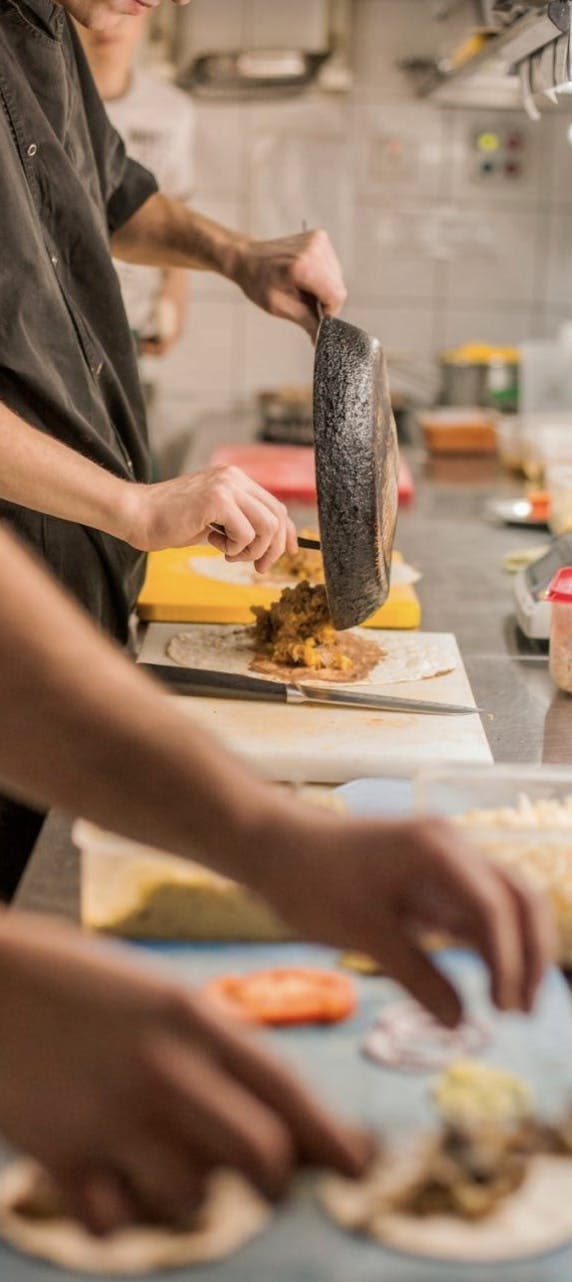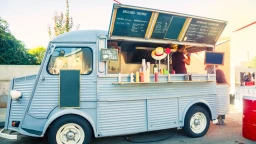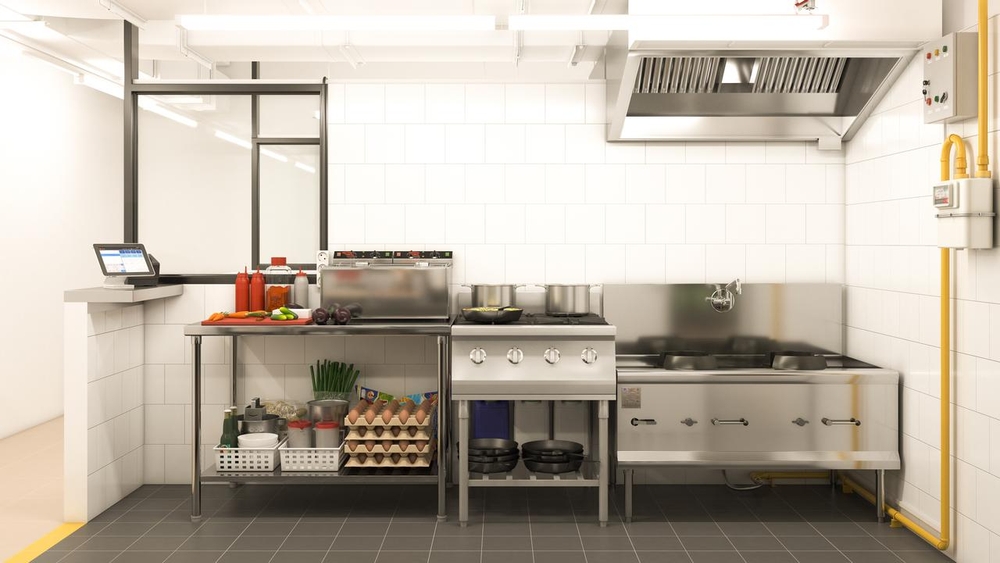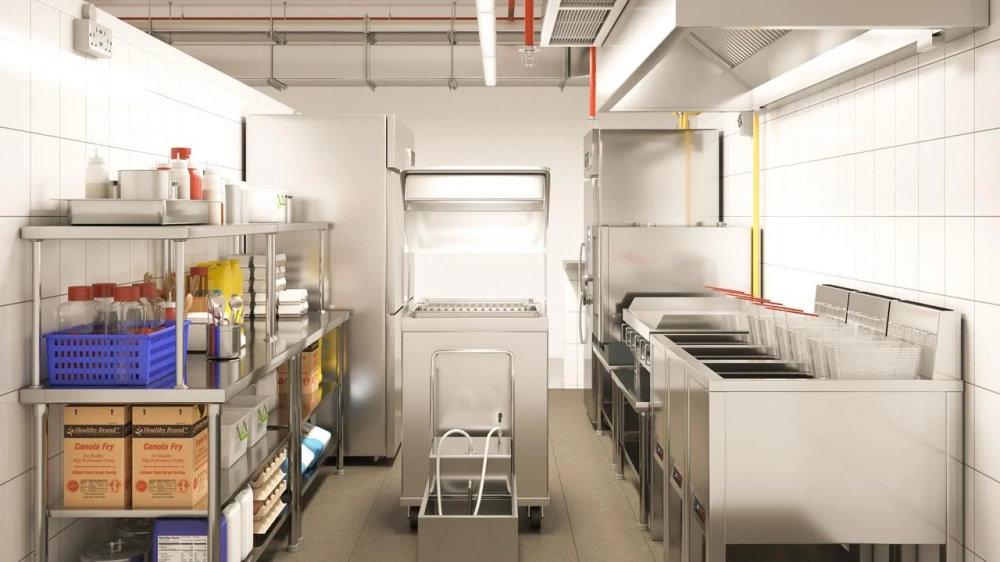Curious How Much It Costs to Start a Food Truck?
Table of Contents
CloudKitchens
How many tacos can be delivered from a 1000sqft restaurant?
The same amount as a 200sqft ghost kitchen.
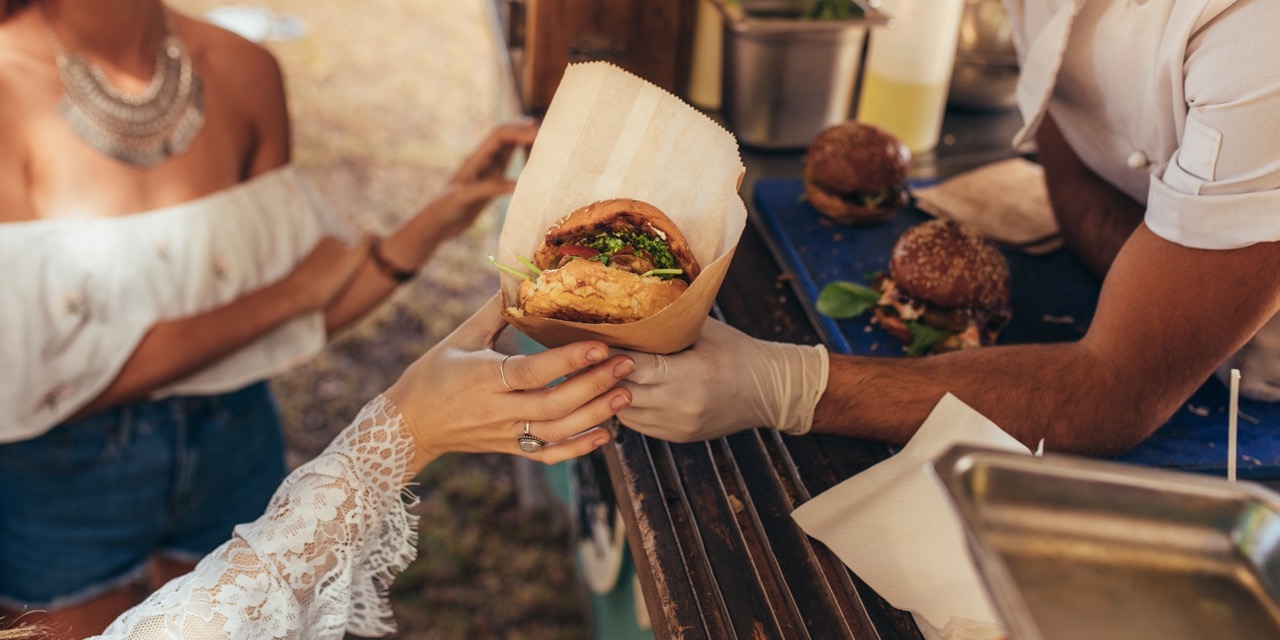
With fewer overhead costs, minimal staff, and the flexibility to move (almost) anywhere, food trucks are often touted as the more affordable way to serve food. But while starting a food truck should cost much less than opening a restaurant, you’re still looking at a sizable price tag.
Every truck is different, but on average, you can expect to spend at least $100,000 to start a food truck. Where you operate, what you serve, and how you run your business will all impact your total bill.
Of course, as any restaurateur knows, the cost of doing business goes well beyond the initial startup fund, and that’s why we’ve put together this all-encompassing guide. From buying and filling the truck to your typical day-to-day expenses, we’re looking at the total cost of running a successful food truck business.
How much does it cost to buy a food truck?
First things first: How much does a food truck cost? Well, it depends.
The truck part of your food truck business is obviously the heart and soul of your operation. As such, you’ll want to invest a decent portion of your budget into the truck itself.
But not all food trucks are created equal. You essentially have three options (and three price points) when looking to secure a food truck:
- Buying a new food truck
- Buying a used food truck
- Building a food truck
Let’s look at the estimated cost of each of these possibilities.
| Ways to get a food truck | PROS | CONS |
|---|---|---|
| Buying a new food truck | – Able to align with cuisine type and cooking equipment | – More expensive |
| Buying a used food truck | – Cheaper than a new truck or building your own truck – Permit and licensing should be quicker | – Might need to “repaint” or “overhaul” the truck – Equipment or cuisine type might not 100% fit |
| Building a food truck | – Able to align all the layout and kitchen appliances to your liking | – Not everyone is capable of doing this option – Permit and license approval might be a headache |
1. Buying a new food truck
For the best of the best, you can buy a brand new, fully-fitted food truck from a specialty dealer for $50,000 to $175,000. Although a new truck isn’t cheap, you can rest assured that every piece of equipment will work. Many new trucks and appliances will even come with warranties.
If a new van appeals but is out of your price range, you can always look into a lease.
2. Buying a used food truck
How much is a food truck on the used market? You can often score a pre-owned food truck for between $30,000 to $100,000. A used trailer or cart can be even cheaper, but you’ll need a vehicle to tow it (and that’s a different can of worms).
While you’ll save money on a used truck, you’ll likely have to put some work into it. Depending on the vehicle’s state, it could need anything from a fresh coat of paint to a total overhaul. With that in mind, be sure to inspect any used truck before committing to a purchase.
3. Building a food truck from scratch
If you’re as handy with a skill saw as you are with a Nakiri, you might be able to buy a vehicle and convert it into a food truck. The cost of building a food truck will depend on the van you buy (new or used) and your vision for the kitchen, so it’s hard to pinpoint a price range, but you can expect to drop at least $50,000.
When you design and build a custom food truck, you guarantee that every aspect—from the layout to the appliances—is exactly to your liking.
But your food truck also has to be to the government’s liking. Food trucks are (understandably) highly regulated by local and state organizations. When building a food truck, it’s essential to design with these requirements in mind—rather than build first and apply for permits afterward. Otherwise, you’ll end up with a tricked-out van that can’t legally serve your delicious food.
Also read: 6 Licenses and Permits Needed to Open a Restaurant
How much does it cost to start a food truck business?
Aside from the truck itself, there are dozens of other expenses tied to opening a food truck. Before you can begin service, you’ll need to cover these costs.
Equipment
Even if your food truck comes fully stocked, you’ll likely need to shell out for some renovations—unless you sprung for a custom build, of course. If you’re starting from scratch, your equipment could cost upward of $45,000.
First, you’ll need your appliances. Depending on your concept, you may require one or more:
- Flat tops or griddles
- Fryers
- Ranges
- Warmers
- Salamanders
- Charbroilers
- Refrigerators
- Freezers
- Microwaves
- Toasters
- Soup kettles
There are also smaller purchases, such as food prep equipment, janitorial supplies, and cookware. And if you hope to take card payments, you’ll want a point of sale (POS) terminal and an onboard WiFi router.
Permits and licenses
According to Food Truck Nation—a study by the U.S. Chamber of Commerce Foundation—the average food truck owner pays $28,276 on regulatory requirements in their first year. These licenses and permits may include:
- A food service license
- A food truck permit
- A “hawkers and peddlers” license
- A health permit
- A parking permit
- A seller’s permit
- An employee health permit
Costs for these permits vary from state to state; check in with your local authorities for accurate pricing. Read more about the licenses and permits needed for food trucks in Florida.
Professional advice and support
Starting a food truck alone is no simple feat, so it’s worth earmarking some of your startup budget for professional help. Meeting with a business attorney or accountant for advice can give you the upper hand when starting a successful food truck business.
Because fees fluctuate—for example, accountants charge anywhere from $37 to $400 an hour—you should be able to find a professional in your price range. If you can, look for specialty advisors with food truck or restaurant industry experience.
How much does it cost to run a food truck?
Prepping your food truck for opening day is only half the battle. To stay in business and turn a profit, you’ll have to factor in your operational costs, too.
Because the price of food, labor, and other necessities vary wildly between states and cities, we’ll only provide ballpark figures for these expenses. As you build out your budget, you’ll want to do more detailed research on the exact costs in your area.
Consumables
Your customers come to consume your food, and you consume all sorts of products to serve them. Here’s what you’ll likely go through during regular operation:
- Ingredients: What will you need to serve that crowd of hungry customers? If you’re open daily, you could spend $1,000 or more on raw materials each week.
- Gasoline and propane: Moving your portable kitchen—and cooking in it—requires gas and propane. All in all, fuel might cost you about $600 per month.
- Supplies: Takeout containers, napkins, and utensils aren’t too pricey, but you’ll need to factor them in.
Staff
Just as you probably won’t start your food truck business solo, you’ll also benefit from having help to run it. If you plan on working the truck full-time, you may only need one or two employees. Otherwise, you might hire as many as five or six.
Your staffing expenses will depend on minimum wage, labor laws, and the cost of living in your area.
Insurance and maintenance
Your food truck is a vehicle, a food service establishment, and a business. As you can imagine, this Venn diagram of categories can make it challenging to find the proper insurance.
Luckily, some organizations now offer specific food truck insurance. Expect to spend a minimum of $1,000 per year, and more if you want add-ons, such as:
- Comprehensive coverage
- Contents insurance
- Worker’s compensation insurance
Unfortunately, no insurance policy will cover routine maintenance—that’s on you. Maintenance costs will range from an inexpensive oil change to appliance repairs; be sure to set aside some of your income for these inevitable expenses.
Parking and storage
Contrary to popular belief, food trucks aren’t entirely exempt from paying rent. In some states and cities, food trucks can’t park just anywhere overnight. Instead, they must stay in commissary parking lots.
A space at one of these lots can cost up to $1,500/month in higher-cost-of-living cities like New York. Fees should be much lower in other areas.
Your city may have both outdoor and indoor commissary parking facilities available to rent. While outdoor options are usually cheaper, they won’t protect your truck from the elements, so a covered space is ideal.
Marketing
Lastly, you’ll need to set aside some money for advertising. As a new business, you may want to spend anywhere from 12% to 20% of your revenue on marketing.
That may feel like a substantial amount (and you can certainly spend less), but it’s important to remember that marketing will bring in new customers and drive profit. Without a marketing budget, you won’t reach your full earning potential, and you’ll be left scrambling to pay for the essentials listed above.
| Items | Costs | Remarks |
|---|---|---|
| Food truck (one-time) | ~$50,000-$175,000 | Depending on buying new or old food truck, or building from scratch |
| Equipment (one-time) | ~$45,000 | Depending on the number of equipment and brands |
| Permits & Licenses (one-time) | ~$30,000 | |
| Consumables | ~$4,600 | Depending on buying a new or old food truck, or building from scratch |
| Staff (x2) | ~$6,000 | $3000 a month based on ~$15/h rate |
| Insurance | ~$1,000 | Per year |
| Parking | ~$1500 | Based on NYC fee |
| Marketing | ~$3,000-5,000 | Spend around 12-20% of the revenue |
| TOTAL | ~$141,100 |
A modern alternative to the food truck
Food trucks have a reputation for being the most affordable way to start serving food to hungry customers. But is that really true? At $100,000 minimum, opening a food truck is still a financial gamble that can leave your wallet empty.
If you want to find a better way to serve your food without the financial burden of opening a food truck or a restaurant, we have a solution—and it’s called CloudKitchens.
With CloudKitchens, you can open a virtual kitchen and start dishing out tasty treats in as little as four weeks while eliminating some of the costs associated with opening a food truck. And with our end-to-end delivery service included, you can still reach the locals wherever they may be—no need to shell out on gas, insurance, or parking for your truck.
Ready to skip the startup hassle and get to cooking? Tour one of our kitchens today to learn more about your options.
| DISCLAIMER: This information is provided for general informational purposes only and the content does not constitute an endorsement. CloudKitchens does not warrant the accuracy or completeness of any information, text, images/graphics, links, or other content contained within the blog content. We recommend that you consult with financial, legal, and business professionals for advice specific to your situation. |
More insights & stories
There’s more where that came from.
Get in the know and check out our additional insights
